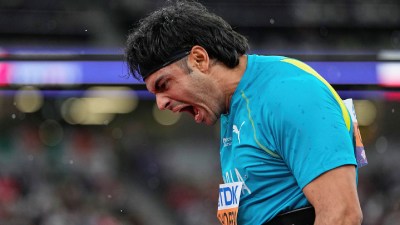Police under the academic scanner
Research into the organisational and human dimensions of police functioning can unravel the intricacies of police deviance

The recent initiative of the director-general of the Bureau of Police Research and Development BPR038;D, Kiran Bedi, to tie up with prominent universities in the country to focus research on issues related to the police comes at a time when the Indian police force is in the news for reasons good and bad. On the one hand, the Indian government has been mulling over police reforms and the possible replacement of the Indian Police Act, 1861, which continues to be the statutory foundation of the police even six decades after independence. On the other, the Supreme Court, reacting to a PIL has set a deadline for the Union and state governments to implement specific proposals for police reforms.
Although the ministry of home affairs, which has so far policed the clearance of such proposals with a negative mindset 8212; rejecting most of them 8212; will continue to be an important entity in the success of this laudable initiative, the upgrade of the BPR038;D8217;s research wing could significantly energise the reform process. The Indian Institute of Public Administration does have a designated division on research and training of police. But since it has not made a noteworthy contribution to the discourse of police reform in the over five decades of its existence, its focus apparently has been on training. The Delhi Police too has been contemplating setting up a police university, whatever its scope.
But the path of police research needs to be trodden with caution, despite its undoubted importance. State-funded research into the police and criminal justice system, wherein legal, systemic and behavioural aspects are reviewed and critiqued continually, is an established practice in many Western countries. Research that reviews and critiques is important to any reform process, particularly in an institution like the police. For example, despite reports of several state police commissions, which mostly remained confined in a few bureaucratic hands, the seething dissatisfaction within the police ranks was not widely known until the police unrest of 1979. Although insurgency had long afflicted the Northeast, the police force was not prepared to deal with terrorism when it broke out in Punjab in the 1980s, and later in J038;K in 1989. The methods that proved successful in Punjab although human rights bodies still question them, have not helped in Kashmir. The police has totally failed in checking the spread of Naxalism and its continuing battle with Maoist insurgents is a story of hits and misses. It has consistently been unable to make a difference between the people and the Maoists. Internet crime is another emerging area. Police methods, too, need to be updated in order to respond to the advantages that modern communication networks and mobility have given to criminals.
The police obviously cannot succeed in its demanding role with an organisation that was created for a colonial state. Though hierarchy is important to any bureaucratic organisation, particularly to a uniformed one, the feudal hierarchy that marks the Indian police is hardly conducive to efficiency. The dehumanising condition of the much maligned constabulary, which is almost always in the centre of controversy, has been seldom factored in. This not only shapes the attitude of constables to the world, it also shapes social attitudes towards them. The organisational and attitudinal factors, thus, have to be combined to put the police and policing under the microscope, together with a problem solving methodology. Most social scientists would argue that the police emerged with the state, although some researchers have argued with historical evidence that policing and therefore the police has its beginning in the evolution of society before the emergence of an organised state. In any case, the police 8212; symbolising the power of the state for centuries 8212; has been perceived a close cousin of the military. Despite the legitimised force that the police are supposed to use in democratic states, it has been identified with power. No wonder, an ex-colonial police force like India8217;s believes that it embodies power, which is used with indiscretion at different levels. When those in power misuse the police for their personal aggrandisement, this attitude is further perpetuated.
Research into these organisational and human dimensions of police functioning can unravel the intricacies of police deviance, so that remedial measures can be put in place.The initiative for research obviously opens new vistas for police reforms and needs to be envisaged with care.
The writer is director, Centre for Public Affairs, Noida
- 01
- 02
- 03
- 04
- 05































